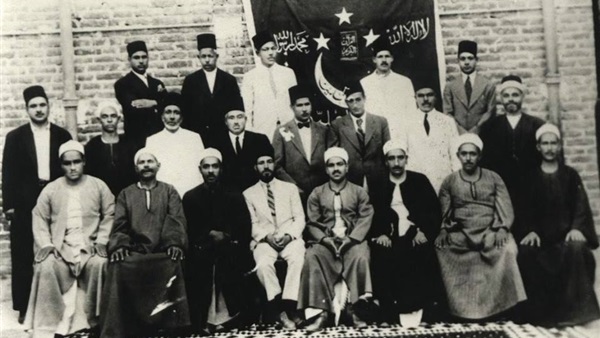The Muslim Brotherhood and “prison literature”… From adversity poems to love letters

In the corner of a
prison cell sat someone holding a pen and some papers, hscribbling some lines,
and then stashing the notes away from guards.
About five or six
decades ago, we received ideas that originated in prisons; Members of the
Muslim Brotherhood, founded by Islamic scholar Hassan al-Banna in 1928, set
about writing notes, messages and diaries from their prison cells. These
writings were called “Griefs of Adversities”.
As Islamic theorist and
leading member of the brotherhood Sayyid Qutb (1906-1967) started doing his
time in Liman Tora, a maximum security prison located south of Cairo. He
concluded his vision, as he addressed the ignorance of the community and the
inevitability of clashing with the ruler.
Qutb’s thoughts
remained behind prison walls since he was sentenced to 15 years in 1955.
In 1959, he finished
writing the last 12 parts of his book “ Fi Zilal al-Qur'an ” (In the Shade of
the Qur'an), and started emending the first 18 parts of the book, which were
published between 1952 and 1954.
Qutb managed to share
his thoughts with his prison mate Youssef Hawash as he was receiving treatment
at the prison’s hospital in the early sixties.
Together, Qutb and Hawash
began aspiring for the foundation of a new Islamic movement. From 1962 to 1964,
Hawash started promoting the movement, while Qutb began communicating its
members of the brotherhood during his time in the exercise yard of the
hospital.
Members of the
brotherhood started approaching Qutb to get to know his invitation to the
Islamic movement. He confessed forming groups inside the prison to study his
books.
Qutb’s younger sister,
Hamida, was known as “the messages carrier”; she was the link between Qutb and
his supporters.
His book “Ma’alim fi'l-Tariq”
(Signposts on the Road, or Milestones), published in 1964, was described as the
constitution of extremist groups; it was written in prison and the brotherhood categorizes
it under “prison literature.”
In his last writing “Limatha
A'damuni” (Why They Executed Me), one penned in the hours before his execution,
Qutb exhorted the assassination of the president, prime minister, military
police director and intelligence director, in addition to a plan to blow up
some public facilities such as power stations and bridges.
Forum of storytellers meanwhile,
a stream of the leftist Muslim Brotherhood feared the spread of Qutb’s ideas
that promoted violence, excommunicated the community and rulers. But second
General Guide of the brotherhood Hassan al-Hudaybi, however, approved printing
Ma'alim fi'l-Tariq.
Hudaybi also argued,
“Qutb understood that the Islamic creed lailaha illa'llah (There is no god but
Allah) means that there is no god on earth but Allah, and that he a god on
earth and in heavens.”
Moreover, Hudaybi sent
a message to imprisoned members of the brotherhood who objected Qutb’s
thoughts, saying, “What Qutb said is the right thing and no Muslim can claim
otherwise, however, I just object the strong expression of his right opinion.”
“There is no need to
argue, anyone can either choose to follow or not to follow Qutb, until our
prisoners are released, and the brotherhood is active again, then we can hold
this subject for discussion to determine what should be said and what should
not.”
In 1955, Islamic
theologian and the current chairman of the International Union of Muslim
Scholars Yusuf al-Qaradawi used to recite his poems to the inmates of the
Military Prison.
The prison was the
forum of storytellers, and because Qaradawi was not allowed to possess pens or
papers, his only way to preserve his ideas was by reciting stanzas to his
cellmates so that they would transfer them to members of the brotherhood when
they get released, in order for them to get documented and categorized under
“Adversity Literature.”
Adversity Literature over
twenty years in the Military Prison, Qaradawy wrote an epic poem of 294 stanzas
describing his sorrow and woes.
On the other hand,
messages of Muslim Brotherhood leading activist Kamal al-Sananiri had a
romantic trait; during his time in jail in 1954, he asked proposed to Qutb’s
sister, Amina, and she approved immediately, knowing he was sentenced to death;
they were engaged for about 20 years while Sananiri was in the Military Prison.
“It has been so long,
and I pity you for this suffering, in the beginning of my engagement I told you
that I might be released tomorrow, and I may spend the remaining twenty years
here, or time may end,” Sananiri wrote in one of his messages to Amina. “I
would not want to be an obstacle in the way of your happiness, you are
absolutely free to make a decision that suits your future from now on, and may
Allah guide you through what is best.”
“I chose a hope that I
am expecting, the way of jihad and heavens, solidity and sacrifice, and
insisting on what we pledged with a firm belief without hesitation or regret,”
Amina replied.
Former Brotherhood
leader Tarek Abul Saad said brotherhood writings in prisons that are known to us
are some poems that were written by brotherhood leaders, some personal messages,
Hudaybi’s “ Du'a la quad ” (Preachers, not Judges), Qutb’s “Limatha A'damuni ”
(Why They Executed Me) and “ Fi Zilal al-Qur'an ” (In the Shade of the Qur'an).
Abul Saad said some
leaders of the brotherhood would bribe guards to pass them pens and papers. He
also added to the Reference that these writings found their way out of prison
through the women, sisters and lawyers of the brotherhood members during
visitations.





